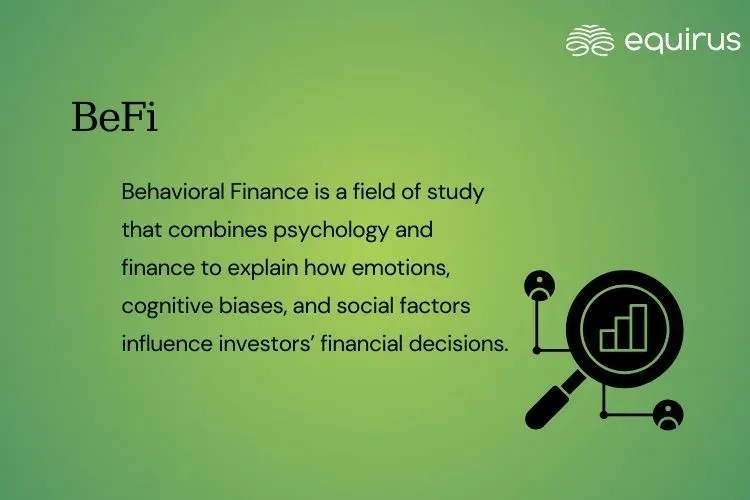BeFi
BeFi Full Form: Behavioral Finance

Key Highlights
-
Behavioral Finance is a field of study that combines psychology and finance to explain how emotions, cognitive biases, and social factors influence investors’ financial decisions.
-
Key concepts includes cognitive biases, emotional influence, heuristics and loss aversion.
What is BeFi?
Behavioral Finance is a field of study that combines psychology and finance to explain how emotions, cognitive biases, and social factors influence investors’ financial decisions. Unlike traditional finance theories, which assume that investors are rational and markets are efficient, behavioral finance recognizes that human behavior often leads to irrational choices, mispricing, and market anomalies.
Key Concepts in BeFi
-
Cognitive Biases: Systematic errors in thinking, such as overconfidence, anchoring, or confirmation bias, which affect investment choices.
-
Emotional Influence: Decisions driven by fear, greed, or herd mentality rather than logic.
-
Heuristics: Mental shortcuts or rules of thumb that can simplify decision-making but also lead to mistakes.
-
Loss Aversion: The tendency to fear losses more than valuing equivalent gains, often leading to overly conservative or reactive investment behavior.
Why It Matters?
Behavioral Finance is critical in wealth management because it acknowledges the human side of investing. Recognizing that investors are not always rational allows advisors to design better strategies, manage emotions during market volatility, and guide clients toward consistent, long-term wealth creation.
